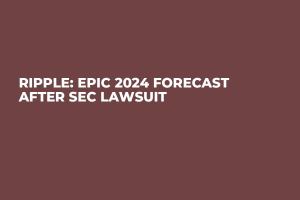
In a recent dialogue between David Schwartz, a key architect of XRP Ledger (XRPL) and the CTO at Ripple, and Bill Morgan, a lawyer and pro-XRP enthusiast, the discussion unveiled intriguing insights into the ongoing debate on cryptocurrency regulation.
The crux of the conversation centered around the SEC's classification of cryptocurrencies as securities.
Morgan dismissed the regulatory body's use of terms like "crypto asset securities" and "crypto securities markets" as mere propaganda. According to the lawyer, these terms lack legal standing in U.S. securities legislation, adding unnecessary confusion to the crypto discourse.
Morgan criticized the regulator for not providing a clear definition of "crypto asset securities," leaving the market in a state of uncertainty.
Schwartz, countering Morgan's perspective, asserted that the SEC does have a definition for "crypto asset security." However, he argued that, based on the regulator's own definition, only tokenized stocks would meet the criteria.
The developer emphasized that the nature of tokens, as entities transferred through distributed ledgers, does not align with traditional investment contracts, challenging the broader interpretation pushed by the SEC.
Crypto, art and diamonds
The conversation took an interesting turn when Schwartz drew a parallel between tokens and traditional assets like art and collectibles. Contrary to prevailing notions, the developer argued that tokens, much like art, are created by design and function as investment instruments.
He emphasized that art, despite serving as an investment, is not labeled an investment contract, transaction, or scheme.
This discourse once again raises a pivotal question: Is cryptocurrency a security? Schwartz's comparison highlights the regulatory challenge faced by the SEC, as he suggests that the current framework fails to account for the intricacies of the crypto landscape.


 Dan Burgin
Dan Burgin Vladislav Sopov
Vladislav Sopov